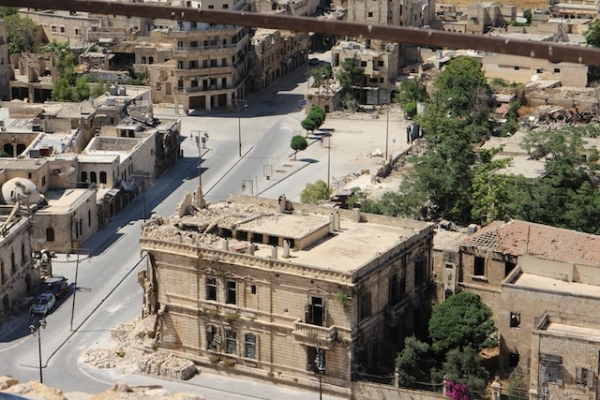On 12 July 2022, the United Nations Security Council adopted Resolution 2642 reaffirming its commitment to guarantee humanitarian operations in Syria.
Resolution 2642 extends the circumstances set out in paragraphs 2 and 3 of Resolution 2165 of July 2014 to the Bab al-Hawa border in northwestern Syria. In accordance with this Resolution, the United Nations formally established the cross-border crossing points in the borders of Bab al-Salam, Bab al-Hawa, Al Yarubiyah and Al-Ramtha, to guarantee humanitarian assistance, the supply of medical equipment, basic necessity of food and drinking water for the affected populations.
The urgent need to extend humanitarian aid for a further six months - until 10 July 2023 - responds to the deteriorating health conditions of the Syrian population. Indeed, the Syrian humanitarian situation has sharply deteriorated following the recent emergence of cases of cholera.
The first cases were recorded in September 2022 and the rapid spread of the epidemic led to the first confirmed death on 3 October. As stated by the various NGOs active in the area, access to drinking water and sanitation are essential conditions for preventing the spread of the epidemic.
The seriousness health situation, worsened by a weak and collapsing health system, has therefore made it necessary to strengthen the medical activity in the area, guaranteed by the border crossings.
The extension of the cross-borders aid for a further six months is therefore aimed at allowing the continuation of humanitarian operations by the United Nations and the various NGOs present in the area.
Currently in the Syrian territory hundreds of thousands of civilians, many of whom are children, live in precarious hygienic conditions in the refugee camps, created since the beginning of the Syrian conflict in March 2011.
Without the extension envisaged by Resolution 2642, the structural incapacity of the Syrian health system, fragile and dominated by the ongoing civil conflict, would not be able to counteract or even slow down the harsh humanitarian consequences of the cholera epidemic.
To read more, please visit:
Resolution 2642:
Resolution 2165:
https://documents-dds-ny.un.org/doc/UNDOC/GEN/N14/465/91/PDF/N1446591.pdf?OpenElement
https://news.un.org/en/story/2023/01/1132142
https://www.savethechildren.it/blog-notizie/cosa-sta-succedendo-siria-il-conflitto-e-la-situazione-oggi
https://www.msf.org/humanitarian-access-northwest-syria-must-be-ensured
By Federica Tognolli







